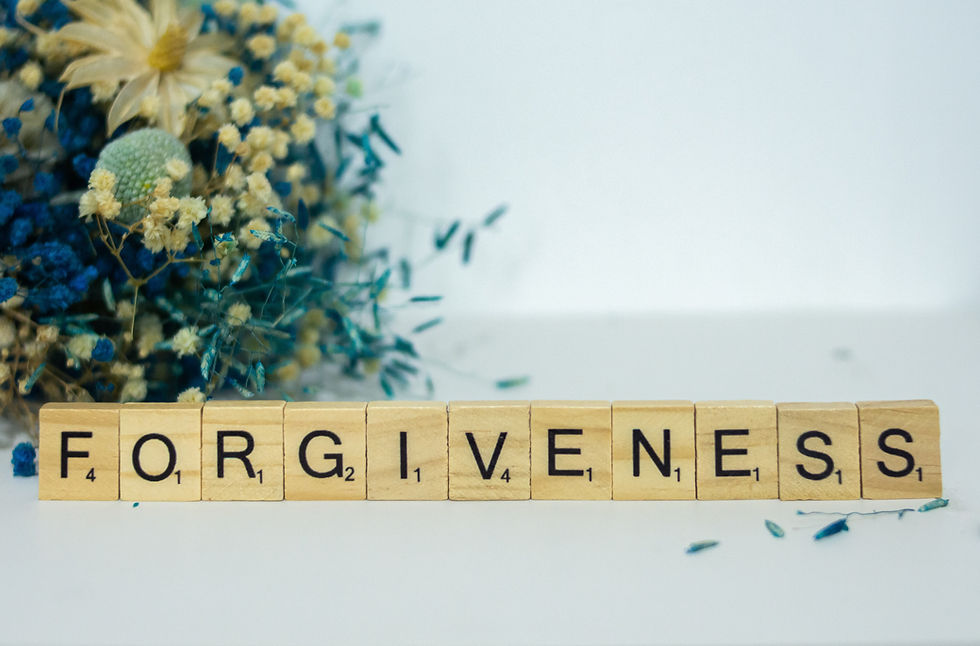Forgiving our mistakes: Working through shame and guilt when we have hurt ourselves or others
- Robin

- Dec 3, 2019
- 2 min read
Updated: Oct 10, 2024

Have you ever made a mistake? Maybe it was something small that you were able to correct immediately and the consequence was minimal. What about a large mistake? A mistake so great that the consequence was thought to be irreparable. Great mistakes have the ability to pair with great consequence.
Mistakes and failure are common
The great Brene Brown reminds us that there is no effort without error.
Therefore, if we choose to live boldly, if we choose to try and be vulnerable to the experience, then we are inevitably opening ourselves up to the possibility of failure.
I think about our 6-year-old a lot when I consider this idea of vulnerability and effort. When we are young we learn by trial and error. We watch our children fall off their bikes and get back on. We see and feel their disappointment. We model compassion and acceptance so that embarrassment and shame don’t sit within them. We humanize the experience by telling them about our past experiences and we build their confidence so that they find the courage and support to keep trying.
Mistakes are a critical component of growth, regardless of age.
Good intentions are not always met with perfect results. However, as we age, our tolerance for mistakes diminishes. After all, we are adults, we are parents, we are spouses, and the mistakes we make are no longer made in a vacuum. They have far reaching consequences that can impact relationships and careers. So, what stops us from moving forward with that childlike acceptance and self-compassion?
Shame and Guilt are self-conscious negative emotions that are critical to the development and maintenance of interpersonal relationships. Shame is different from guilt, although they are often used interchangeably. Shame relates to the self, and guilt to others. If your mistake resulted in hurting another person, then it’s quite possible that you may experience both. Shame and Guilt are critical to the human experience, however if they resonate in us too long, it impacts our ability to separate the mistake itself from the idea that we are the mistake. When this happens, it may become harmful to our identity.
The ability to forgive ourselves for our mistakes is critical to our psychological well-being.
Self-Compassion occurs when we extend compassion to one’s self. Self-compassion is related to our psychological well-being as it fosters emotional resilience (a critical component of the learning process).
Self-compassion is a critical component of moving forward.
4 Ways to practice self-compassion include:
-Self-forgiveness (I made a mistake, I am not the mistake)
-Gratitude (I am grateful for my blessings)
-Employing a growth mindset (Do the best you can until you know better. Then when we know better, do better-Maya Angelou)
-Mindfulness (How am I being kind to myself in this moment)





